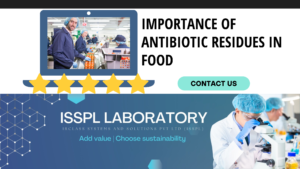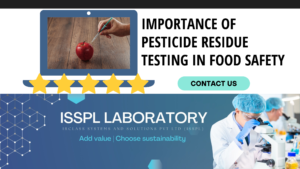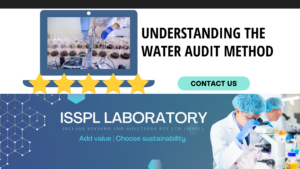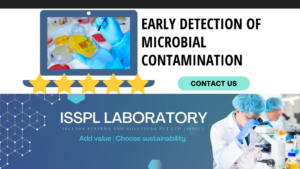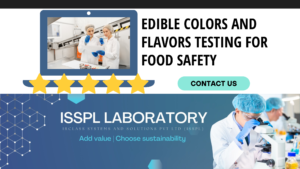An Overview by Team ISSPL - Analytical Testing Laboratory in India
ToggleCanned foods examination is an extensive process of quality measurement of goods at different stages of the dynamic logistic chain. The inspection helps minimize the potential trade risks related to the production phase. The best quality canned product in agreed quantity is essential to maintain the best professional link between parties for export or import. Do you know the definition of canned foods? It includes the following –
- Meat-based products like – stew, pates, sausage, etc.
- Fish items with various cooking options
- Diverse vegetable products with marinades, like – cucumbers, beans, corn, sauces, salads
- Milk and dairy products like – condensed milk, cheeses and cottage cheese, kefir
- Fruit-based items like canned berries, jams, compotes, juices, jam
A comprehensive inspection
The process of reviewing the canned products is comprehensive. It comprises various technological schemes of canned food production. Every inspection step differs depending on the features of the processed raw materials. It also depends on the purpose of the end product.
The safety of food-based canned products demands rigorous technical conditions. It includes everything from manufacturing of containers, processing, handling of containers, storage, and distribution of the product. Canned food must follow mandatory compliance to ensure the best quality. Maintenance of the temperature regime is essential under all circumstances.
Efficient transportation is vital to deliver the goods from the manufacturer to the consumer. The delivery of canned products with the help of refrigerated trucks and insulated vans delivers the best solution.
The need for lab testing and analysis
The pre-defined norms for the quality of canned products are diverse. It includes appearance, taste, smell, color, and consistency. The sensory taste of canned food helps determine the signs of spoilage and the presence of pathogens.
More than fifty percent of canned food may contain microorganisms after sterilization. Do you know why? Because the storage conditions may not deliver the best solution. If the temperature requisites are violated, one may witness the spoilage chances of the product. The bacteriological study and analysis of canned food help you identify the condition conveniently.
Apart from the fundamental analysis techniques, the chemical examination can deliver the best solution. With the new-age testing facilities, review the acidity, the percentage of components in canned products, and much more. It determines the amount of salt, trace elements, macronutrients, etc., in the canned items.
Prevention of microbial growth – Lab testing for food safety
Microorganisms include yeasts, molds, and bacteria. These are sensitive to the pH level of a food item. Very low or high pH values can prevent microbial growth. Many foods have pH values low enough to ensure protection against microbial growth.
One can find foods with low pH values to inhibit the growth of microorganisms, like – yeasts and molds. These can tolerate lower pH conditions compared to most bacteria. Heat processing or canning is essential to follow for the best quality determination. This is vital information for managing the products and the overall canning operation at the correct temperature.
The processing times are not the time essential to cook the food. In fact, it means the heating times necessary for canned food products that makes it commercially sterile. What is commercial sterility? It is defined as the point where the harmful microorganisms that may be growing in the food get killed. The accurate processing time for canned food depends on multiple factors.
It includes the pH of the food, thickness or viscosity of the canned product, food particle size, container dimensions, and temperature of the cooking medium. The pH of the food is integral for canning the products and determining the essentiality and amount of heat processing.
All these are indispensable requisites to obtain a safe end product.
Chemical tests to ensure optimal safety
Chemistry testing methods and analytical experiments can detect and provide an overview of the chemical contaminants in food and beverage products. Accurate chemical information is essential to abide by the essential environmental norms. The various testing techniques include –
- Chromatography – Chromatography is a prime technique essential to separate and review the various chemicals in a sample. The chemical testing is based on the affinity to a solvent. The process includes gas chromatography or GC and high-performance liquid chromatography or HPLC.
- Mass spectrometry (MS) – The spectrometry test for the canned product technique identifies and quantifies chemicals in a sample by measuring their mass and charge. It can be integrated with chromatography techniques to enhance sensitivity.
- Atomic absorption spectroscopy (AAS) – The absorption technique helps review the concentration of heavy metals in canned products. The analysis takes place on a sample based on the absorption of atomic photons. AAS is an elemental analysis in the food industry with several benefits.
- Enzyme-linked immunosorbent assay (ELISA) – The enzyme analysis technique detects and defines the presence of allergens and toxins in a canned product sample. The result depends on the principle of antigen-antibody interactions. The laboratory experts use enzymes in the food to generate a signal for enhanced detection.
- X-ray Fluorescence (XRF) spectrometry – The new-age analytical X-ray method is an excellent solution for food applications. It is essential to review and determine the elemental composition of products. XRF includes minimal sample preparation within an efficient analysis timeline. The non-destructive analysis results in enhanced resolution in solids and liquids.
GMP – Good Manufacturing Practices for quality determination and safety
The safety of canned foods is paramount. Manufacturers must ensure strict adherence to Good Manufacturing Practices defined in the Recommended International Code of Hygienic Practice for Low-Acid and Acidified Low-Acid Canned Foods. It contains the vital information and testing techniques essential at the time of can manufacture, packaging, storage, and distribution. Abiding by the norms of GMP enhances product safety with optimal quality assurance.
Canned food and analytical testing – Ease the needs with the experts.
The food items and preservatives in the canned product require in-depth analysis to determine safety and hygiene. Get the best testing facilities and accurate analytical reports from IRCLASS Systems and Solutions Pvt Ltd (ISSPL) laboratory. It is the trusted service provider that helps you obtain the best data on analytical testing.
